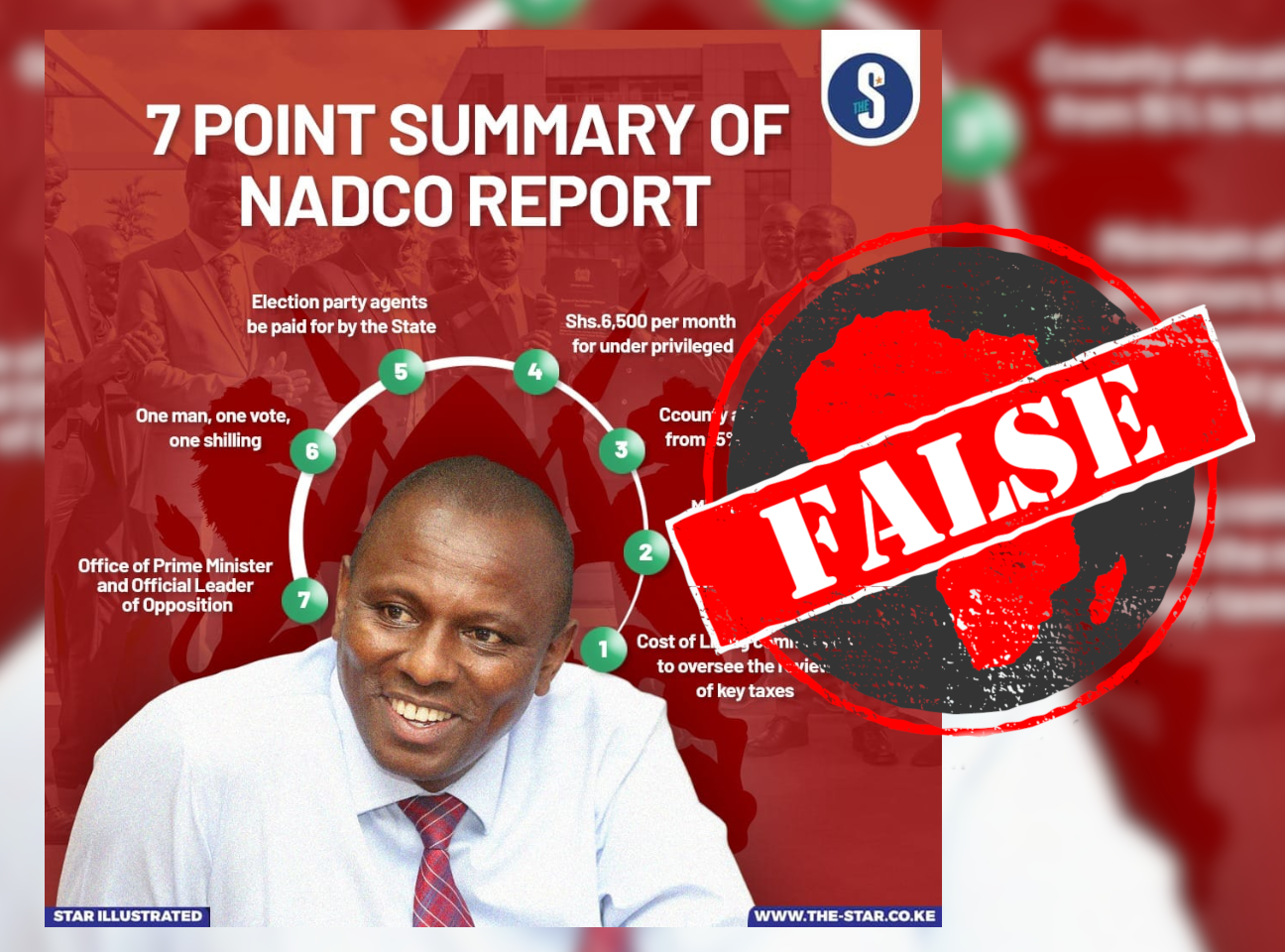IN SHORT: A graphic supposedly showing a seven-point summary of a report by Kenya’s national dialogue committee is fake. The Star newspaper did not publish it and the summary is inaccurate.
“7 point summary of the NADCO report,” reads text at the top of a graphic allegedly published by the Star newspaper in Kenya.
The graphic features a photo of Kimani Ichung’wah, the majority leader in Kenya’s national assembly.
The seven points in the graphic are:
- Cost of living commission to oversee the review of key taxes
- Minimum of 18 women governors to meet the requirements of the two-third gender rule
- County allocation from 15% to 45%
- Shs.6,500 per month for underprivileged
- Election party agents be paid for by the state
- One man, one vote, one shilling
- Office of prime minister and official leader of opposition
The National Dialogue Committee (Nadco) was established in 2023 when the Kenyan government and opposition agreed to talks to resolve their differences following the 2022 elections.
Opposition leader Raila Odinga had led demonstrations to protest against the high cost of living, tax increases and poll results, among other grievances.
The role of the committee was to gather views from Kenyans about the country's electoral system, cost of living and inclusiveness, among other issues. They met for several months and produced the Nadco report, which was adopted by parliament in February 2024.
The report was presented to Kenyan president William Ruto and Odinga on 8 March.
The graphic has been posted here, here, here and here. Some of the points it carries are far-reaching. They include higher allocations to county governments and increased social welfare payments. But did the Star really publish it?

‘Beware of fake news’
Africa Check reviewed the Nadco report and found that out of the seven-point summary on the graphic, only the points about the office of the prime minister and official opposition leader appeared in the report.
We searched for the graphic on the Star’s verified X account (formerly Twitter) and Facebook page, where such graphics are usually published and came up empty.
The Star newspaper flagged the graphic as “FAKE” on 12 March through its official X account and Facebook page.
“Stay alert and beware of fake news. If it is not on our official pages, it is FAKE! Visit http://the-star.co.ke for real and authentic news,” wrote the Star.
Republish our content for free
For publishers: what to do if your post is rated false
A fact-checker has rated your Facebook or Instagram post as “false”, “altered”, “partly false” or “missing context”. This could have serious consequences. What do you do?
Click on our guide for the steps you should follow.
Publishers guideAfrica Check teams up with Facebook
Africa Check is a partner in Meta's third-party fact-checking programme to help stop the spread of false information on social media.
The content we rate as “false” will be downgraded on Facebook and Instagram. This means fewer people will see it.
You can also help identify false information on Facebook. This guide explains how.


Add new comment